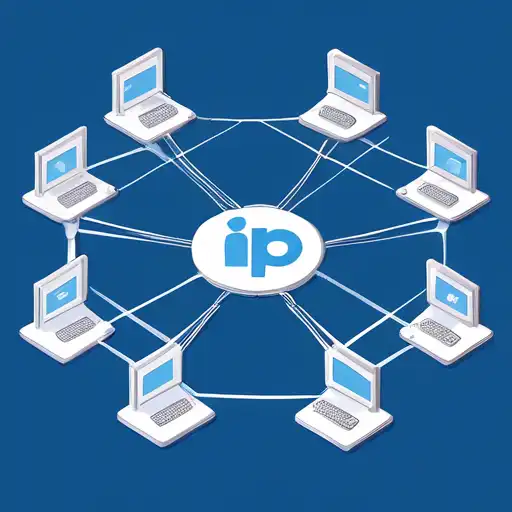Introduction to IP Addresses
In the digital age, understanding the basics of networking is crucial for anyone looking to navigate the internet efficiently. At the heart of this knowledge is the concept of an IP address, a unique identifier that allows devices to communicate over a network. This guide will delve into the essentials of IP addresses, their types, and their role in networking.
What is an IP Address?
An IP (Internet Protocol) address is a numerical label assigned to each device connected to a computer network that uses the Internet Protocol for communication. It serves two main functions: identifying the host or network interface and providing the location of the host in the network.
Types of IP Addresses
There are two primary versions of IP addresses in use today:
- IPv4 (Internet Protocol version 4): The most widely used version, consisting of four sets of numbers separated by dots (e.g., 192.168.1.1).
- IPv6 (Internet Protocol version 6): Developed to deal with the exhaustion of IPv4 addresses, it uses a more complex format that allows for a vastly larger number of unique addresses.
How IP Addresses Work
IP addresses are the cornerstone of internet communication. When you enter a website's URL into your browser, a Domain Name System (DNS) server translates it into an IP address, allowing your device to connect to the website's server. This process happens in milliseconds, enabling seamless browsing experiences.
Static vs. Dynamic IP Addresses
IP addresses can be either static or dynamic:
- Static IP Addresses: These remain constant, making them ideal for hosting websites or services that require a permanent address.
- Dynamic IP Addresses: Assigned by a DHCP server, these can change over time and are commonly used for residential internet connections.
The Importance of IP Addresses in Networking
Without IP addresses, the internet as we know it would not function. They enable devices to find and communicate with each other, forming the backbone of global connectivity. Whether you're sending an email, streaming a video, or browsing the web, IP addresses make it all possible.
Securing Your IP Address
While IP addresses are essential for connectivity, they can also be a target for malicious activities. Using a Virtual Private Network (VPN) can help protect your IP address from being exposed to potential threats, ensuring a safer online experience.
Conclusion
Understanding IP addresses is fundamental for anyone interested in networking or the internet. From enabling device communication to ensuring the smooth operation of the internet, IP addresses play a pivotal role in our digital lives. By grasping the basics outlined in this guide, you're well on your way to becoming more knowledgeable about the technologies that power our connected world.
